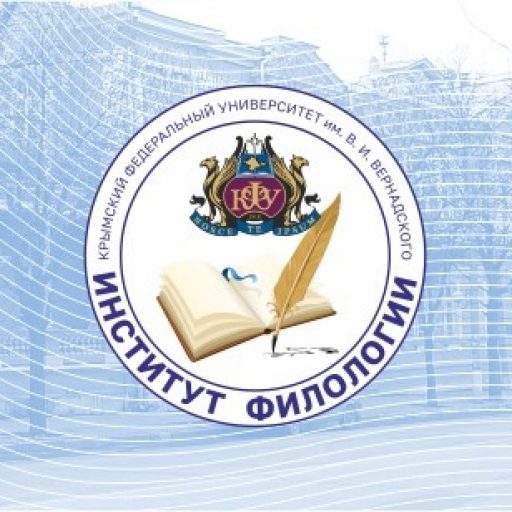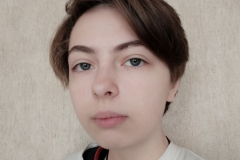Организаторы: Кривёнышев Константин, Решиджанова Карина, Малышева Анастасия, Лоскутова Екатерина.
Куратор: ассистент кафедры английской филологии Радченко Т.А.
Дата и время: 25.11.2020, 15:00.
Участники: группа 202 (13 человек).
Мероприятие должно было полностью проходить на английском языке и занимать 30-45 минут. Участникам предлагалось посмотреть 10-минутное видео (https://youtu.be/iekSj3XfPUQ), отправленное в беседу ВКонтакте, затрагивающее детство, юность и военную карьеру великого полководца Георгия Константиновича Жукова, его участие в гражданской войне и боях на Халхин-Голе. Мы остановили свой выбор на этом видео потому, что оно подробно описывало становление личности и карьеры Героя Советского Союза, акцент делался на его железной воле, решимости и твёрдости, которые помогли ему многого достичь.
Далее участники перешли в Discord, где Решиджанова Карина и Лоскутова Екатерина поделились интересными фактами, связанными с участием Георгия Жукова в Великой Отечественной Войне (см. Приложение 1). Следом шла викторина, подготовленная Малышевой Анастасией, основанная на видео и включающая в себя восемь вопросов (см. Приложение 2). Завершали мероприятие вопросы для обсуждения, подготовленные Кривёнышевым Константином (см. Приложение 3). На этом этапе все участники перешли на русский язык. В конце мы определили самого активного участника дискуссии, которым оказалась Кожемяко Екатерина, и подарили ей стикерпак ВКонтакте.
Мероприятие проходило дольше, чем планировалось, и связано это было с желанием провести его полностью на английском языке. За активность был предложен секретный приз, чтобы дополнительно мотивировать активное участие в викторине и дискуссии. Как нам кажется, мероприятие прошло хорошо, мы рассказали и показали всё, что хотели, и надеемся, что участники узнали много нового о Георгии Константиновиче Жукове и улучшили навыки английского языка.
Приложение 1.
Fact #1
Marshal Georgy Zhukov was responsible for the successful defense of Moscow, Stalingrad, and Leningrad against German forces and eventually pushed them back to Germany. He led the final attack on Berlin, and he was so popular after the war that Soviet Premier Joseph Stalin saw him as a potential threat. Stalin stripped him of his positions and relegated him to military commands of little strategic significance.
Fact #2
The title of Marshal of the Soviet Union Georgy Zhukov was awarded in early 1943. He became the first officer to be awarded this title since the beginning of the war. As Marshal, he took the surrender of Nazi Germany, and in 1945 the main Victory Parade in Moscow’s red square and in Berlin at the Brandenburg gate.
Also, on his 60th birthday, in 1956, Zhukov received his fourth Hero of the Soviet Union title – making him the first person to receive the honor four times. The only other four-time recipient was Leonid Brezhnev. He became the highest-ranking military professional who was also a member of the Presidium of the Central Committee of the Communist Party. He further became a symbol of national strength. Zhukov’s prestige was even higher than the police and security agencies of the USSR.
Fact #3
In August 1942 Zhukov was named deputy commissar of defense and first deputy commander in chief of Soviet armed forces. He became the chief member of Joseph Stalin’s personal supreme headquarters and figured prominently in the planning or execution of almost every major engagement in the war. He oversaw the defense of Stalingrad (late 1942) and planned and directed the counteroffensive that encircled the Germans’ Sixth Army in that city (January 1943).
Fact #4
In April 1945 he personally commanded the final assault on Berlin and then remained in Germany as commander of the Soviet occupation force. On May 8, 1945, he represented the Soviet Union at Germany’s formal surrender. He then served as the Soviet representative on the Allied Control Commission for Germany.
Приложение 2.
- At what age did Georgy Zhukov go to Moscow to be an apprentice to his furrier uncle?
A). at the age of sixteen
B). at the age of eleven
С). At the age of fourteen
- In which year was Georgy Zhukov first called up for military service?
A). in 1914
B). in 1917
C). in 1915
- What award did Georgy Zhukov receive during the Brusilov Offensive?
A). Two St. George Crosses
B). Order of the red banner
С). One St. George Сross
- What was the biggest peasant uprising in the Civil War suppressed by Georgy Zhukov?
A). The West Siberian Revolt
B). The Tambov Revolt
C). The Saratov Revolt
- What title did Georgy Zhukov get by the 1920s?
A). Regimental commander
B). Non-commissioned officer
C). Division commander
- In which military district did Georgy Zhukov become Deputy commander in 1938?
A). In the Belarusian military district
B). In the Moscow military district
С). In the Far Eastern military district
- For the victory in which battles did Georgy Zhukov receive the title “Hero of the Soviet Union”?
A). In the battles near Tsaritsyn
B). In the battles for Uralsk
С). In the battles on Khalkhin-Gol
- Who started his career thanks to the interest of Georgy Zhukov?
A). Evgeny Dragunov
B). Mikhail Kalashnikov
C). Igor Stechkin
Приложение 3.
- You’ve just listened to the story of Georgy Zhukov’s success. What qualities, from your point of view, should a commander possess to succeed?
- How should a commander treat his people?
- Zhukov wrote in his memoirs that the war was good for the rich only. He referred to WWII, but do you think we can say the same about all the wars in general? Give reasons.
- Georgy Zhukov was fighting for his people and his major motivation was to bring peace and liberty to his country. Do you think the results of his actions would have been the same if his motivation had been different? For example: to get plenty of money. In other words: does it matter what motivates you to do something or not and why?





